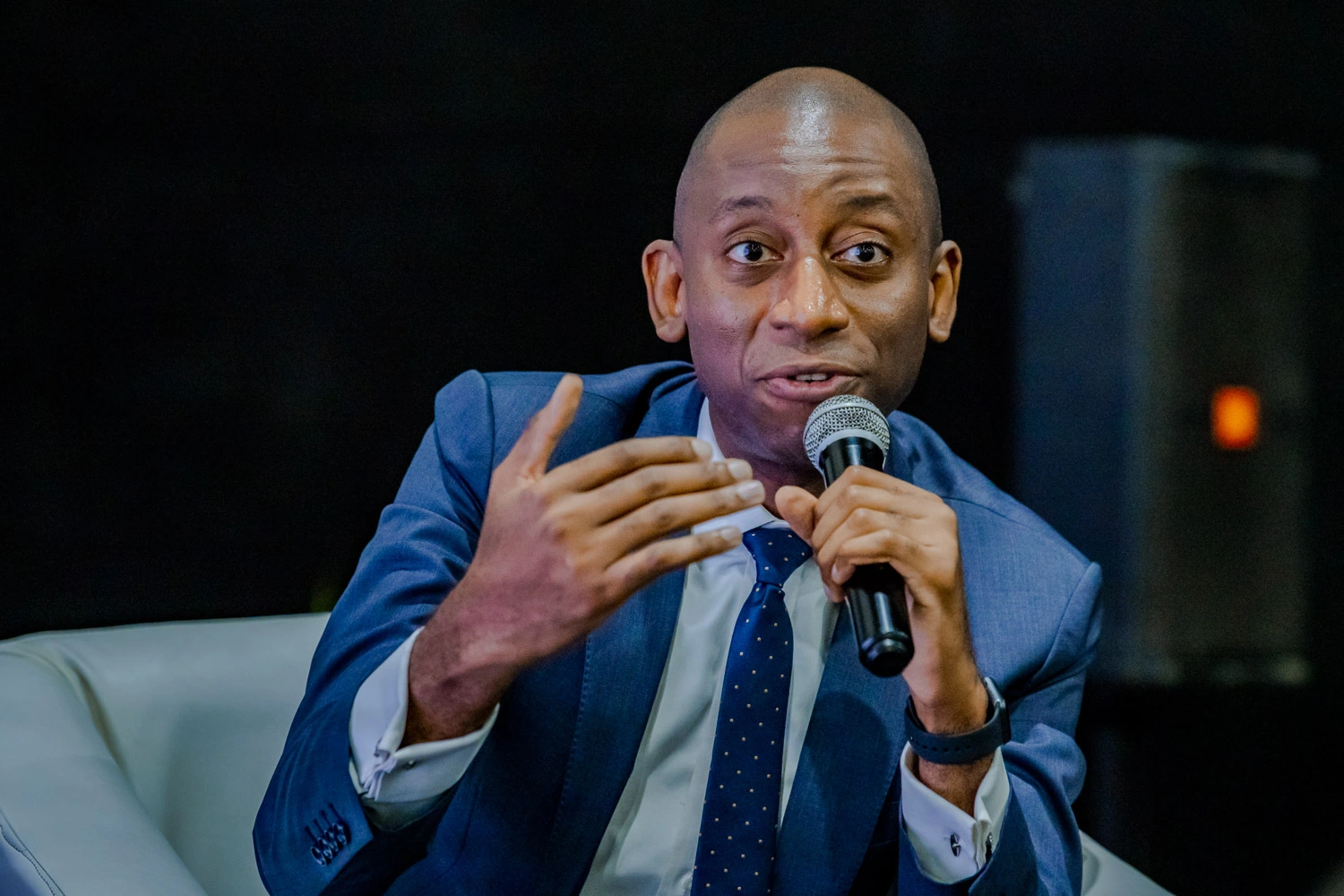Despite a weak local economy, a currency in free-fall, and tight market conditions globally, Bamboo, a Nigerian-born retail trading app retains optimism about its new Ghana operations. But it’s not the same story for everyone—non-payment fintechs with individual and SMEs clients have been hit hard.
A few months after Bamboo, an online brokerage app, launched in Nigeria in 2020, CEO Richmond Bassey said it was flooded with emails from Ghanaians requesting access to the app. The waiting list from Ghana grew to 50,000. Two years later, this September, Bamboo opened access to Ghanaians after securing permission from Ghana’s Securities and Exchange Commission (SEC).
Worsening local and global economic conditions mean non-payment fintechs may face more headwinds. But Bamboo’s CEO says he is unfazed by the downturn.
Headwinds build up
Before this round of crises put pressure on Ghana’s economy, an unpopular 1.5% levy on electronic payments had put pressure on revenues for payment companies.
Ghana’s public market has ranked in the top ten best stock exchanges in Africa in the past three years. In the year-ended 2021, Ghana’s stock market was the second-best performing public market in Africa (investors recorded a 38.59% return in US dollar terms, or +43.66% in local terms). This strong performance has undoubtedly encouraged local investment in Ghana’s publicly traded companies and funds. However, the local bourse has declined by 11.78% between November 2021 and November 2022.
Coupled with raging inflation and a spiralling cedi, it is a fair assumption that investors may be reassessing their investments or at least investing in more attractive markets like the US.
Bamboo appears to be banking on this. “Even though the market isn’t doing well, I’d like to think that we are growing because we are educating people that even though it is not doing well, there are opportunities to invest,” community engagement officer, Deola Adebiyi, told African Business in September.
Defying the fate of Robinhood?
Inspired by US retail trading app, Robinhood, Bamboo offers users educational tools including free premium content from popular investment education websites, Motley Fool and mywallst.com. But its main offering is a partnership with US-based DriveWealth LLC that allows Bamboo to buy fractional shares in US-listed companies and funds. Media reports put the number of Bamboo users at 500,000.
According to Crunchbase, Bamboo has raised a total of $32.6M in funding over five rounds, including a $15 million Series A fundraise which was announced in January this year.
But Bamboo’s inspiration, Robinhood, isn’t doing very well. After peaking at 21.3 million in the second quarter of last year, the app’s monthly active users declined to 13.3 million in August this year. Robinhood’s users are also trading less than they did a year ago and the company failed to reach revenue estimates in the last earnings call held just three weeks ago.
With the downturn in publicly listed companies in the US, Bamboo users are becoming more cautious. “People want to invest for the long term,” CEO Bassey told TechCabal. Users now spend more time in the app but are buying less of more, he says. Exchange-traded funds (ETFs) like Vanguard are a growing favourite.
Unlike RobinHood’s public filings which show a decline in engaged users, Bamboo’s CEO says Bamboo users spend about eight hours monthly on the app, up from just over five hours from the second half of last year.
An internal report released by the company indicates that users are indeed buying more (in terms of volume) than they are selling. The report does not indicate the value of these transactions.
The economic conditions are “impacting how much people want to invest, not their willingness to invest,” Bassey says. “What we are seeing is that volumes have grown. In the first half of 2022 we’ve seen that trade values have reduced, not the volumes,” he added. For more risk-averse investors, Bassey says his company is considering offering an 8% fixed-yield product to Ghanaian users. The product is currently only available in Nigeria.
In the meantime, Bamboo appears to be doing well in general, but it is not clear if it can replicate its Nigerian performance in Ghana. Bassey believes that growth in new account openings reinforce his belief that there is still strong demand especially since most users appear to be purchasing company shares for the long term.
It is still conceivable that Ghana’s worsening economy can force users to be more conservative as it certainly has for Bamboo’s older peer in the US.
An economy out of order
Ghana is suffering a twin debt and currency crisis. The economy is also struggling through record high 37% inflation. In October, traders closed their shops for three days to protest rising inflation. Joseph Obeng, the leader of the Ghana Union of Traders Association, the country’s largest lobbying group for retailers, told local media that the combined effects of high inflation, exchange and interest rates have “deeply eroded” business owners’ capital by over 50% this year.
From raids on foreign exchange bureaus to Nigerian-style bans on food imports, Ghana’s government is desperately trying to rein in the economy.
The country’s debt servicing is expected to take up 47% of revenue in 2022. Negotiations for a $3 billion IMF rescue program are ongoing as the government scrambles to shore up falling revenues and prop up the value of the Ghanaian cedi. Part of the government’s plan includes encouraging “traders to tone down profiteering which is contributing to inflationary pressures” even as the rising cost of goods bites into profits.
“The sudden major fall of the cedi resulted in panic withdrawal as more customers resorted to convert their investments into dollars,” Richard Duodu, CEO of Financial Mobile Suite, a financial services company with products that span wealth management, lending, tax administration and payments told TechCabal. Eventually, the withdrawals slowed down after the enterprise clients Duodu’s company serviced implemented “hair cuts”.
“Gradually, customers are getting used to this new reality and can only hope the IMF deal which looks like our only last resort works out the magic we are all praying for.”
But an IMF loan will come at a steep price—a default on $14 billion worth of foreign bonds (basically debt) the government sold to investors in Europe, Africa and around the world. And deep cuts to the government’s budget. Foreign investors are not taking this news kindly. This IMF programme will be Ghana’s 17th since independence in 1957.
IMF’s signature austerity measures may also take time to yield benefits—if any. In the short term, however, Ghanaian citizens and residents will feel the pinch.
One fintech founder told TechCabal via text, that one of his company’s clients, a frozen food business, saw up to 70% reduction in sales due to hyperinflation. “Further investigation showed that the fast-food businesses who mostly patronised this SME couldn’t afford the price of cooking oil—the main ingredient to fry the chicken. This is because oil prices had gone up by 200% in the span of a week. [Cooking oil] is currently selling at 500% YTD,” this founder said.



















